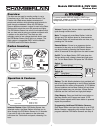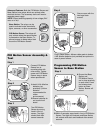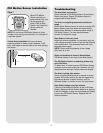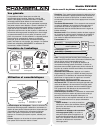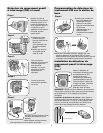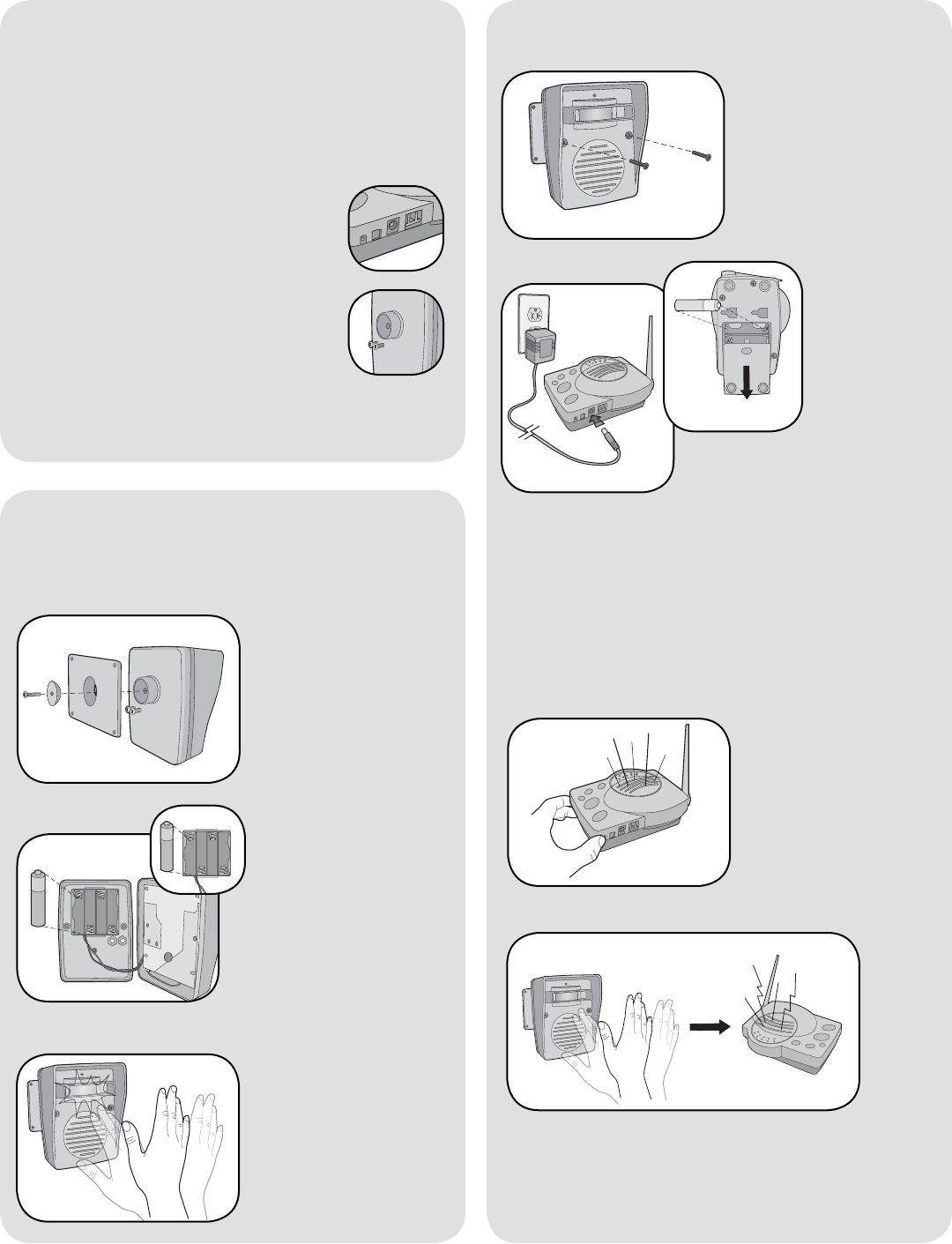
2
PIR Motion Sensor Assembly &
Test
Connect PIR Motion
Sensor box to
mounting plate with
silver screw. Tighten
screw until PIR Motion
Sensor stays in place
when repositioned.
A Install 4 AA Alkaline
batteries (not
provided). (Lithium
batteries
recommended for
colder
environments.)
B Ensure batteries do
not touch circuit
board.
Test PIR Motion
Sensor by waving
hand in front of
sensor. Test light
should flash after
several seconds.
Plug in Base Station. Adhere rubber pads to bottom.
4 AA Alkaline batteries (not provided) are optional in
case of power failures.
A Ensure that Base
Station and
PIR Motion Sensor
are in close proximity
to each other. Press
and release learn
button on Base
Station. Buzzer will
sound.
OPTIONAL
A
B
Secure cover with the
two large black
screws.
B Within 5 seconds, wave hand in front of PIR Motion
Sensor. Test light will illuminate and Base Station
will activate with static and feedback after several
seconds.
Programming PIR Motion
Sensor to Base Station
A
B
Step 1
Step 2
Step 3
Step 5
Step 6
Step 4
Advanced Features: Both the PIR Motion Sensor and
Base Station have relays which can activate other
electrical devices. The accessory device will need a
separate power supply.
NOTE: Output switching capacity is low voltage (24V
max, ac or dc).
Base Station: The relays can be
used to activate louder alarm bells,
lights, cameras, or other accessories.
PIR Motion Sensor: The relays will
only activate when the remote button
is pressed on the Base Station. To
prevent access to these relays flush
mount the PIR Motion Sensor.



